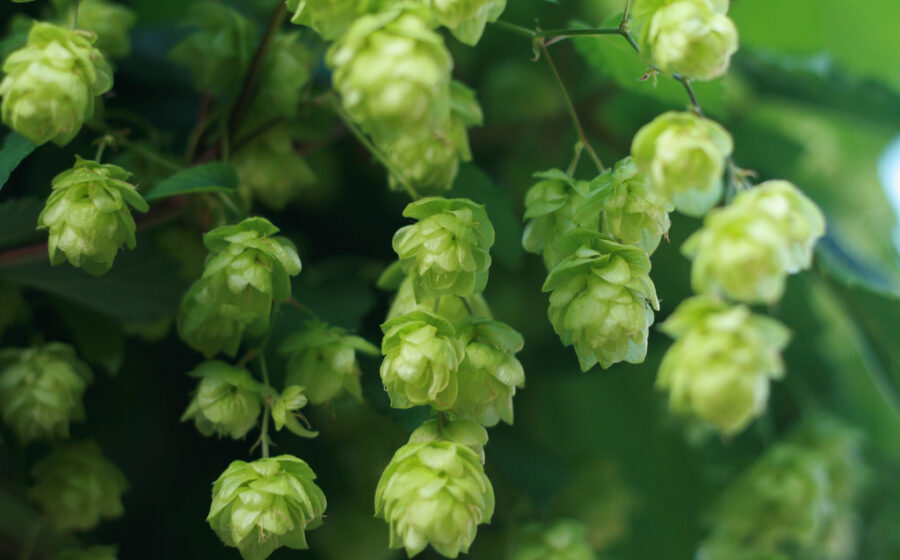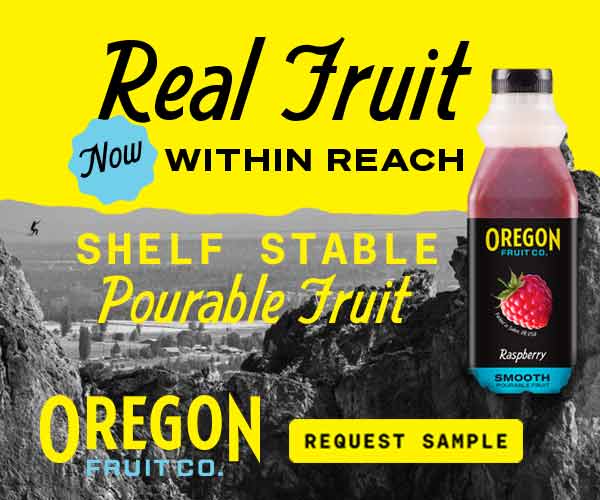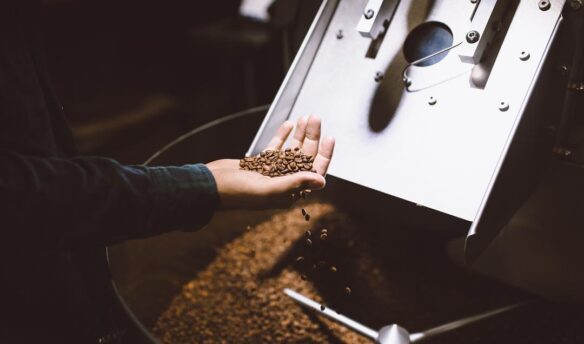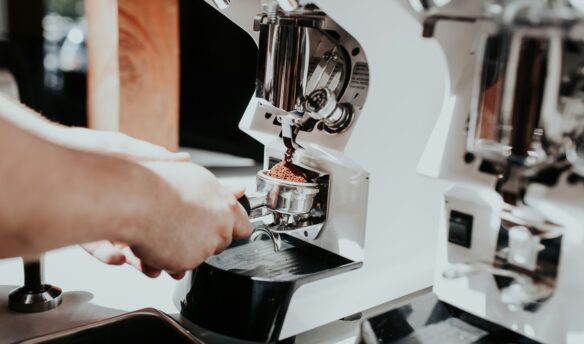[C]offee like Guinness: it exists. Pulled through a nitro tap and flowing into its glass with a beautiful cascading presentation, the heady cold brew is popping up all over the country—from Cuvée to Chocolate Fish to Alchemy. But here’s a wrinkle: some innovators are adding hops. That’s what Corvus Coffee Roasters, in Denver, Colorado, and Crimson Cup Coffee & Tea in Columbus, Ohio, have been experimenting with—and it’s arguably the next cold-brew coffee trend.
Crimson Cup’s Coffee Buyer, Dave Eldridge, spent eleven years with a local microbrewery as brewmaster before moving on to coffee. Inspired by Klatch Coffee’s nitro cold brew, Eldridge, Coffee Training Specialist Brandon Bir, and Coffee Quality Technician Chris Shegitz developed their own recipe. Eventually they decided to add hops. The resulting brew was a hit, garnering local press and a strong customer response. “It’s been great to see everyone as excited as we are,” says Eldridge, “because craft coffee and craft beer together appeal to such a wide variety of people.”
Westward, in Colorado, Phil Goodlaxson and the gentlemen at Corvus Coffee were hanging around with a lot of brewers and, on a whim, threw some hops into bottles of cold brew. “The first batch probably wasn’t that great but it was good enough that people were interested beyond just the novelty factor. We thought, ‘let’s chase down the idea and see where it goes!’” A year later, they are selling their hopped cold brew at Whole Foods Markets through the Rocky Mountain region, offer it to their wholesale clients, an serve it in Corvus’ two physical locations.
These beverages having developed independently, they show a fascinating variance in their production. Crimson Cup uses Oregon hops along with a “traditional Antigua coffee with lots of nice citrus notes, orange rind and lemon, and a deep cocoa.” Eldridge says the team looks for hops that could carry the acidity and high notes of that coffee, preparing it in a twenty-four-hour cold brew five gallons at a time. The team’s beer background (in addition to Eldridge’s brewing history, Chris is an avid home brewer) and connections in the local beer community helped them in their experimentation and taste testing.
Corvus, on the other hand, adds whole local hops throughout the eighteen-hour brewing process, which Goodlaxson says “gives it a lot of freshness and aroma and a lively hoppy flavor on top of the coffee.” The Corvus team also shares knowledge and troubleshoots with the local brewing and distilling community. They experimented with hop pellets because of the huge amounts of space whole hops take up in storage, but quickly decided the pellets altered the soluble nature of the water too much for even extraction of coffee and hops. The team currently uses a Malawi/Brazil blend for the coffee component of their cold brew, and plans to rotate origins.
At Crimson Cup, at Corvus Coffee, and around the country, hop-driven innovation continues: craft beer and coffee meet in one perfect glass.
—Emily McIntyre is a regular contributor to Fresh Cup. Photo by Paul Miller (Flickr).

















